DISCLAIMER: THIS PAGE DOES NOT PROVIDE MEDICAL ADVICE.
This page is intended for informational purposes only. No material on this page is intended to be a substitute for professional medical advice, diagnosis, or treatment. Always seek the advice of your physician or other qualified healthcare provider before changing your dietary or cooking habits.
Aluminum is among the most popular materials for cookware thanks to its affordability and superb heat distribution. However, some people steer clear of aluminum cookware due to concerns about the health risks it may pose.
This post presents research-based information on health concerns related to uncoated aluminum pans. However, we will also briefly touch on the safety of nonstick pans that use aluminum as a base.
We will also discuss how to care for your aluminum cookware to minimize metal leaching, and look at the best alternatives available should you decide to avoid aluminum cookware altogether.
Are Aluminum Pans Safe?
Modern, well-crafted aluminum pans are “not considered to be harmful” by CDC’s Agency for Toxic Substances and Disease Registry (ATSDR).
However, studies suggest that cooking acidic foods in aluminum raises blood aluminum levels and oxidative stress markers. But long-term effects of aluminum on our bodies are still controversial, and more studies are needed.
Although numerous studies have been done on the effects of aluminum on human health, many of those studies focus on the occupational hazards of aluminum manufacturing and not as much on cookware.
What’s more, the few studies done on the hazards of aluminum cookware mainly focus on cookware made in developing nations, where aluminum may be gathered from contaminated sources to create pots and pans.
What is Aluminum and How Are We Exposed to It?
Aluminum is one of the most abundant elements in the earth’s crust. It’s a lightweight, silvery-colored metal that’s easy to work with and inexpensive to source. Because it’s such a common element, humans everywhere are exposed to aluminum in the air we breathe, food we eat, and products we use.
The CDC’s fact sheet on aluminum indicates that most people ingest more aluminum from food and drug sources (like antacids, baking mixes, herbs, and tea) than from using aluminum cookware. The maximum recommended weekly aluminum intake for adults is 1 mg/kg of total body weight. The CDC also states that only 0.01–5% of ingested aluminum is absorbed by the body.
Potential Health Risks of Aluminum Cookware
So aluminum is everywhere, but is it harmful? Excessive aluminum exposure can impact the following:
Lead Contamination of Aluminum
Lead contamination of aluminum is another recently-raised cause for concern.
This 2022 study discovered that many aluminum crock pots contain lead in excess of 100 parts per million, and leached much higher levels of lead than stainless steel pots.
Related: Aluminum Vs. Stainless Steel Cookware- What’s The Difference?
While much of the problematic cookware was made in developing nations through artisan methods that may have used contaminated salvaged aluminum, some of the crock pots and pressure cookers studied were commercially available in the US.
There have also been recent concerns about lead contamination in aluminum attachments for KitchenAid stand mixers.
Aluminum and Alzheimer’s Disease
Does cooking with aluminum really increase your risk for Alzheimer’s? Unfortunately, the jury is still out on this question. Many researchers believe that, since 95-99.9% of ingested aluminum is eliminated, the amount of aluminum found in the brain of some Alzheimer’s patients simply can’t come through dietary intake alone.
However, other research indicates that even a tiny amount of aluminum passing through brain barriers increases one’s risk for Alzheimer’s disease.
So, although researchers have not reached a consensus regarding the role of aluminum in Alzheimer’s, most agree that you should minimize your exposure as much as possible.
How to Minimize Your Exposure when Using Aluminum Cookware
If you don’t want to throw out your aluminum pans, you can take measures to minimize your aluminum exposure from cookware. Here are the main tips to follow:
Some Types of Aluminum Cookware Leach More than Others
The most straightforward way to use aluminum in cookware is as an uncoated metal. “Natural” aluminum products are lightweight, inexpensive, and great at distributing heat. However, since aluminum is a soft material, these products aren’t durable and require special maintenance.
Anodized Aluminum
To make aluminum cookware stronger, manufacturers use a process called anodization.
Anodized aluminum cookware has a layer of aluminum oxide on the surface of the metal. This layer makes the cookware highly durable, mainly because it’s from the metal itself rather than an added layer of another material.
Anodized aluminum cookware won’t chip, peel, or flake easily and becomes rust-resistant as the coating layer is fully integrated into the substrate. Plus, it doesn’t react with acidic foods, meaning it doesn’t leach aluminum into foods and is safer than uncoated aluminum.
Manufacturers used to sell anodized aluminum pans without extra coatings. These days, however, most hard anodized aluminum cookware also has a ceramic or nonstick coating.
Coated Aluminum
Nonstick aluminum refers to pans with an aluminum core coated with a PTFE layer to make the cookware nonstick and create a barrier between the bare metal and your food. Of course, many people have concerns about nonstick cookware, given the health issues associated with Teflon, the trade name for PTFE.
However, this coating makes aluminum cookware more appealing and functional than if it was just bare metal. You can find aluminum cookware coated with PTFE infused with other materials, such as titanium or granite. Most manufacturers don’t like to advertise that they use polymers in their nonstick coatings, but unless they’re using a ceramic nonstick, almost all of them do it.
Ceramic-Coated Aluminum
Aluminum pans that have a sol-gel coating are known as “ceramic” nonstick pans. They don’t contain teflon, but function similarly to regular nonstick.
Cast Aluminum
Cast aluminum cookware is thicker and stronger than most bare aluminum pans. With cast pans, melted aluminum is poured into molds to create durable and uniform cookware.
Cast aluminum pans are much lighter to handle than cast iron, but they can be seasoned in the same way.
Disadvantages of Natural Aluminum Cookware
While aluminum is affordable and can perform well, the health concerns associated with it aren’t its only disadvantages. Other reasons to avoid aluminum pans include:
Finally, leached aluminum may add a subtle metallic taste to your food. However, in a test done by the guys in America’s Test Kitchen, cast iron pans left a much more noticeable taste in tomato sauce than aluminum cookware did.
What Are the Alternatives to Aluminum Cookware?
More effective and potentially healthier alternatives to aluminum cookware include:
Final Thoughts
The health concerns regarding aluminum may be a dealbreaker for many people when choosing safe cookware. While research has shown that the majority of most people’s exposure to aluminum comes from sources other than cookware, it never hurts to be careful.
You can reduce your exposure to aluminum by choosing anodized, high-quality cookware. Avoid temperatures and cooking acidic foods in aluminum pans. Use alternative materials, such as cast iron and stainless steel, for these purposes.
Does this make you feel better or worse about using aluminum cookware? Let us know your thoughts in the comments!

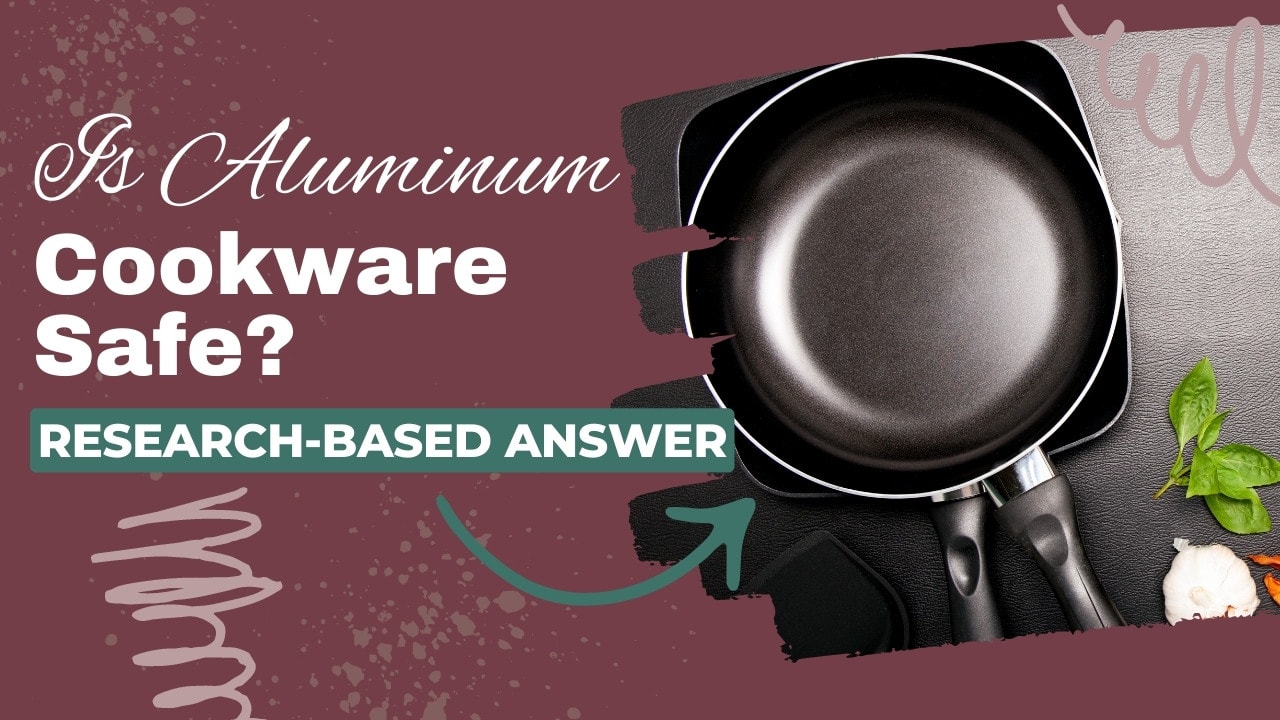
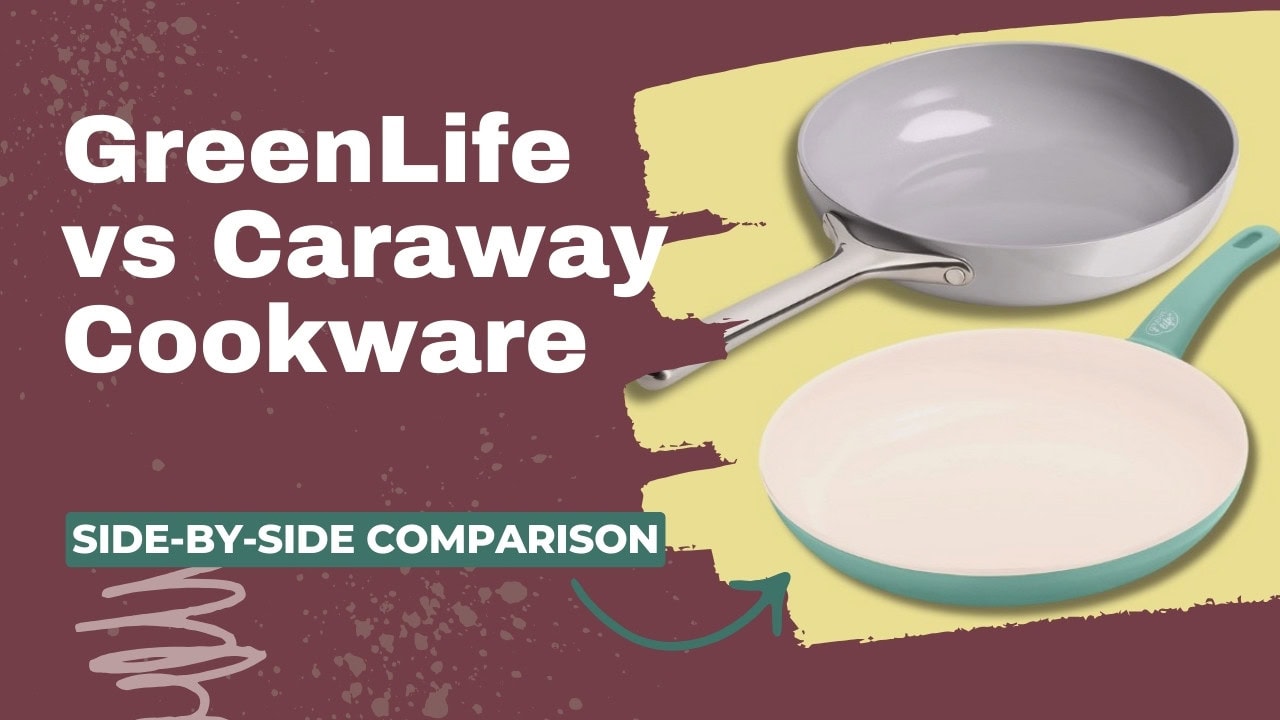
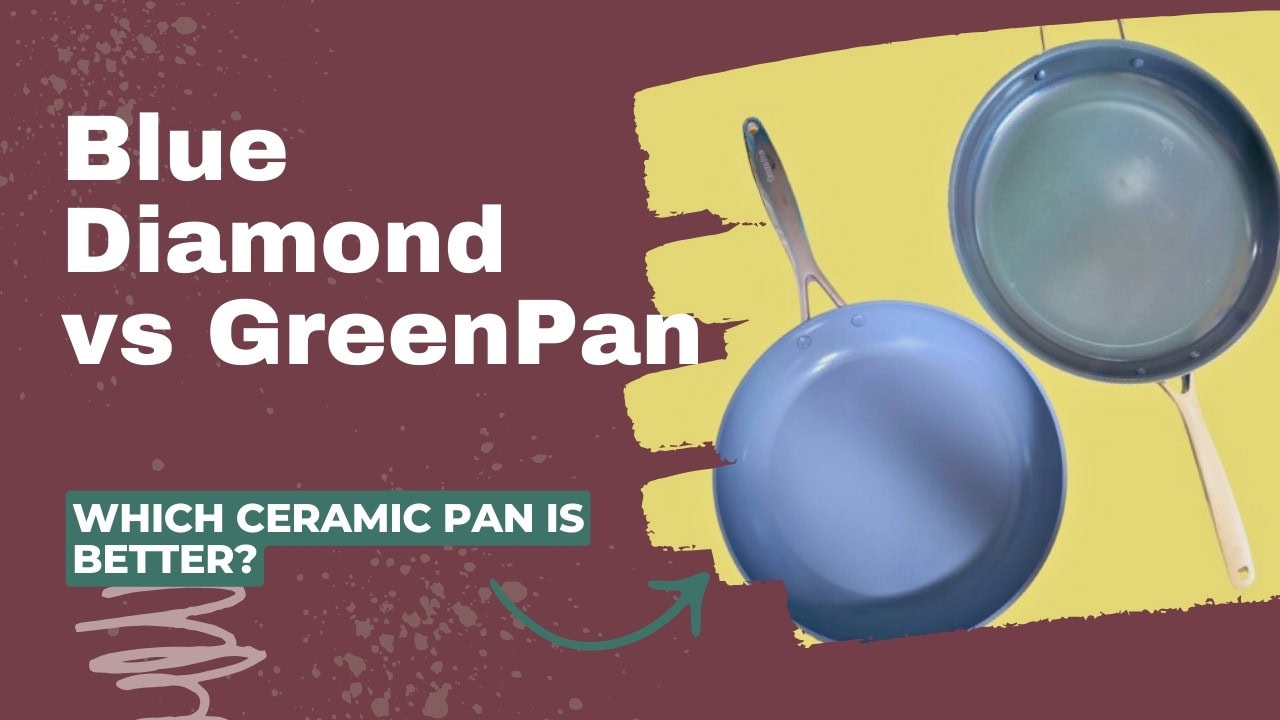
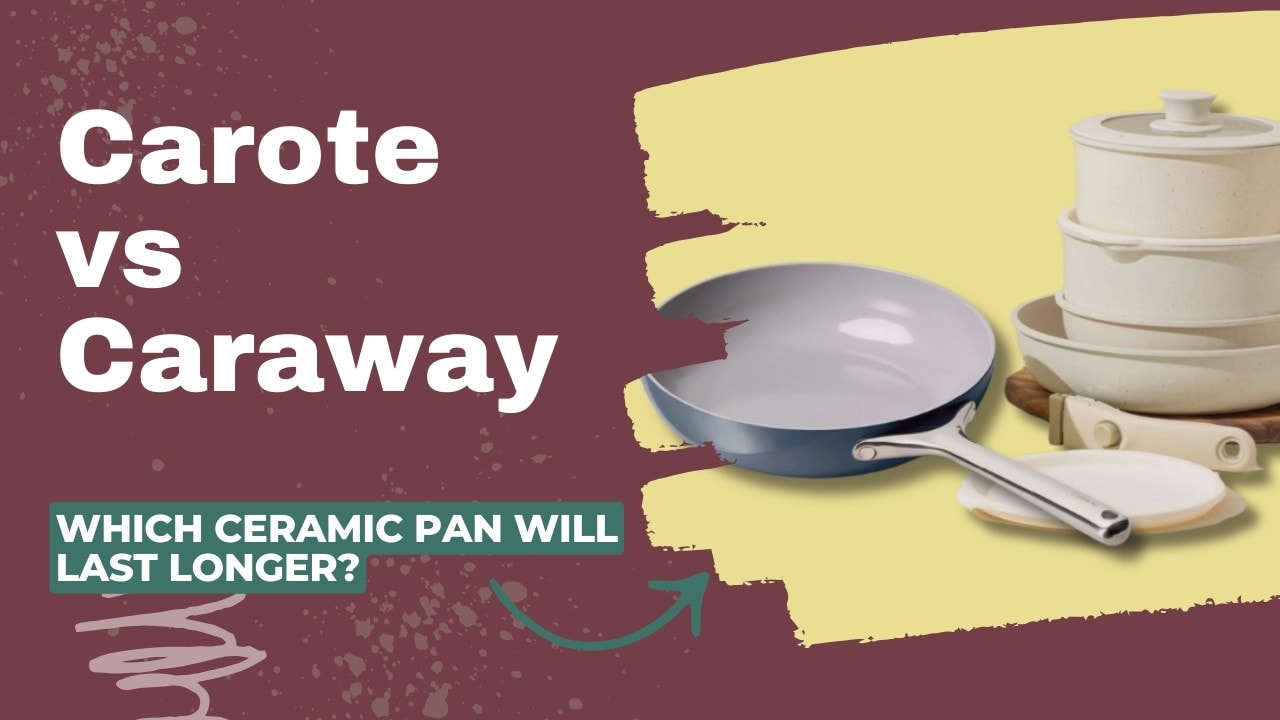

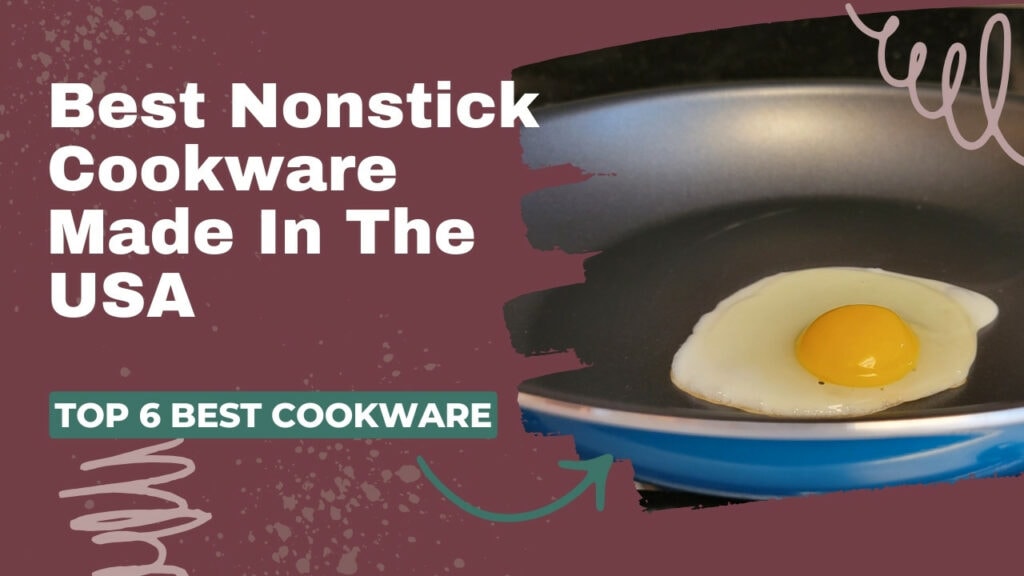
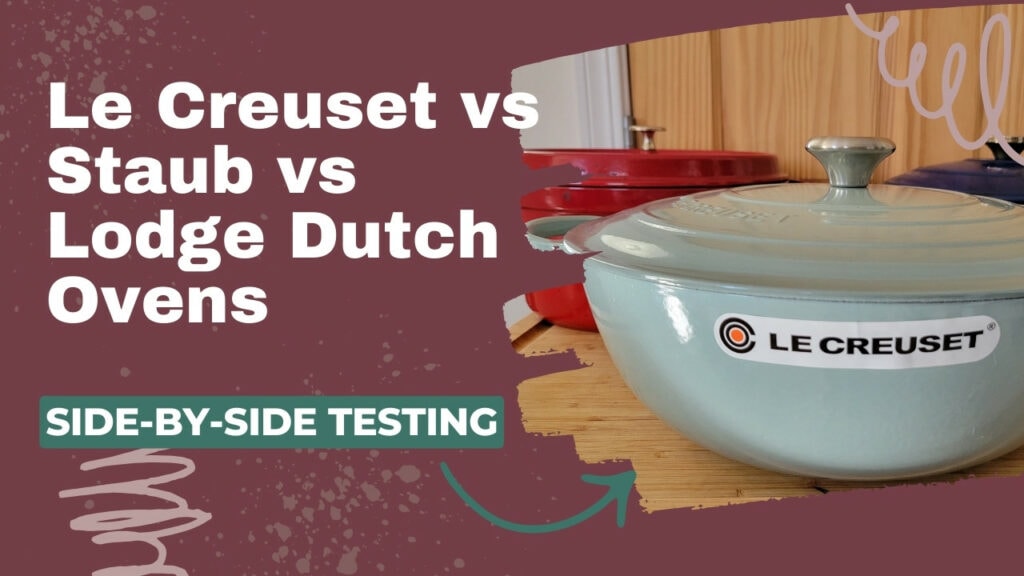
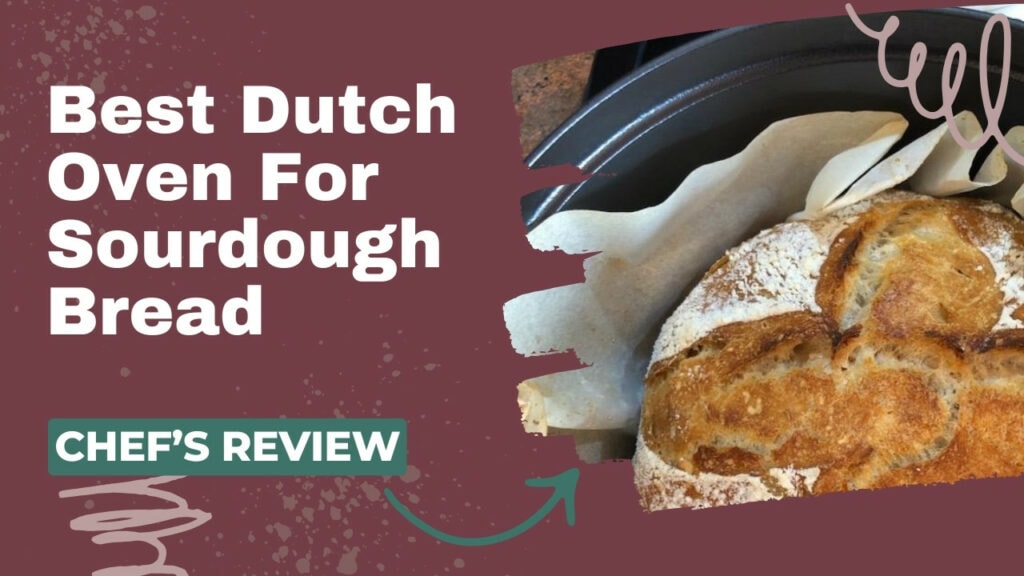

I have a set of very old CAST aluminum pans from my mother…made in the USA. My friend says I should not use them because they are bad for my health. None of these comments really deal with my pans. Can you get me guidance about their safe or unsafe use…please.
Hi Susan,
I’m afraid there is no definitive answer to this question. Modern aluminum cookware tends to be less risky than older models. I recommend avoiding this set. But if you like to cook in your cast aluminum set, avoid acidic foods and ensure it is well seasoned.